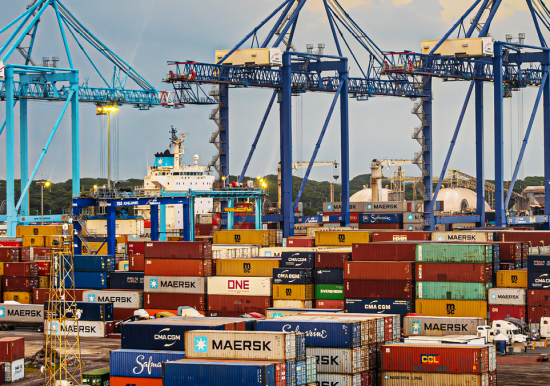
Why Property Rights Matter to Good Governance
Tim Hanstad, CEO, Chandler Foundation and Co-Founder, Landesa.
Before leading the Chandler Foundation as its CEO, Tim Hanstad was the co-founder and CEO of Landesa, the world’s leading land rights organisation.
Landesa is a Social Good Organisation that works with governments and other local stakeholders to help develop strong, effective, and inclusive land property rights systems through research, technical assistance, training, and advocacy. Starting as a 2-person team in 1992, Landesa has grown over the years to become a global Top-10 NGO, working with governments in over 50 countries on reforms that have provided secure, legal land rights to over 150 million poor citizens.
Why do Property Rights Matter for a People’s Wellbeing?
I grew up in a farming community, and as a child spent my summers working in the fields shoulder-to-shoulder with poor, migrant labourers from Central America. Getting to know some of these fellow labourers, I was left with two impressions: they were the poorest people I had ever known, and they were the hardest workers I had ever observed. Reconciling those two impressions challenged the worldview I had absorbed—that the pathway to upward social mobility was primarily through determined individual effort.
Over the years, as I reflected on the plight of these earnest, hardworking migrant labourers, I realised the great “opportunity gap” they faced due to the arbitrariness of the country in which they were born. It was the most important explanation of their dire economic circumstances. I began to wonder what might be done to change the conditions in their home country so such hard-working people could prosper there. In particular, I imagined if they had owned their own land and farm back home—like my immigrant grandparents—their trajectory might be much different.
In college, I was introduced to the writings and work of an American law professor who argued that landownership was a primary differentiator between the world’s “haves” and “have-nots”. This professor, Roy Prosterman, had been working with several low-income country governments to help them provide landownership to people and communities living on the margins. I became fascinated with the topic—and eventually found my way to the law school where Professor Prosterman taught and, later, working as his research assistant.
In this role as a law student in the 1980s, I learned that most of the world’s poorest people had two things in common: they made their living from the land, and they did not have secure legal rights to that land. Also in this role, I was given the opportunity to travel to the fields and slums of many poor countries and spend countless hours and days with many people living on the margins. Speaking with them—learning from them—about their aspirations and challenges, I was continually struck that their aspirations were similar to mine. They wanted a better life for themselves and their children. But their opportunity to realise those dreams was not nearly the same as mine—in large part because they did not, and often could not, own land.
Several years after law school, Professor Prosterman and I co-founded Landesa, a social good organisation, by taking the property rights research, advisory, and advocacy work he had been doing part-time as a professor outside of the university. From the beginning, Landesa’s work recognised that defining and enforcing land property rights—the legal relationship between people and land—was the monopoly of the government. Thus, improving land property rights—making property rights more robust and inclusive—required working directly and constructively with governments.
Property rights are public goods that governments have to define and protect. In fact, land and natural resources are among the most valuable and important assets for a government to steward, and the land policy decisions governments make are crucial to the well-being of that country’s citizens. The path to peace and prosperity for any country is integrally tied to whether and how it creates property rights systems that are clear, strong, transparent, and inclusive.
How do Land Rights Relate to a Country’s Wealth?
How do countries go from being poor to prosperous? Most start their developmental path relying primarily on agriculture and other land-based industries. Gradually, if the agricultural sector realises success, the country and its labour force gradually transitions to higher-value activities in industry or services. In those early stages of development while much of the labour force is in agriculture, the relationship between farmers and the land is crucially important. Land is the foundational asset for agriculture, and having strong and clear rights is crucial for making long-term, productivity-enhancing investments. Strong property rights to land are a prerequisite for healthy land rental and sale markets, which are necessary to facilitate an effective transition from agriculture to higher-value sectors.
They wanted a better life for themselves and their children. But their opportunity to realise those dreams was not nearly the same as mine – in large part because they did not, and often could not, own land.
Tim Hanstad, CEO, Chandler Foundation and Co-Founder, Landesa.
As the non-farm business sector grows, effective property rights systems are crucial for buying, leasing, and improving land for businesses. Such systems are also perhaps the most effective form of facilitating the credit systems necessary to accumulate the needed capital for development. And, of course, land effective property rights systems are the foundation for safe and affordable housing.
One can trace the pathway to prosperity for most countries based on their ability to develop an effective property rights system. Achieving long-term prosperity and peace requires much more than just an effective and inclusive land property rights system; but no country has achieved it without such a system.
One can often also trace the pathway to prosperity (or poverty) for any family using a property rights lens. Owning land or not owning land, buying land, selling land—we can all find aspects of our own family history where the ability (or not) to own land, buy land, sell land made a significant contribution to our family’s inter-generational socio-economic pathway.
Those aspects of our family history related to land property rights will vary substantially from country to country. If we live in a country that has an effective, well-developed, and equitable system for defining and enforcing property rights, we can easily take it for granted. Unfortunately, much of our fellow world citizens cannot take it for granted. Those migrant labourers with whom I worked as a child certainly could not. Even today, the World Bank estimates that only 30% of the global population has legally registered rights to their land and homes. In high-income countries today, home and land ownership is the primary driver of household wealth. Growing this wealth is not possible without an underlying system of property rights.

What Determines a Good System of Property Rights?
Over the years, as Landesa grew from a 2-person organization to one of the world’s Top-10 Social Good Organizations, we had the opportunity to work with and learn from government leaders from more than 50 countries across the world. And over that time and with those partners, we developed the following list of ten characteristics common to effective land property rights systems:
1. Rights are clearly defined.
2. Rights are both legally and socially recognised.
3. Rights are inclusive—including equally available to women and men.
4. Rights are ultimately enforceable by the government.
5. Rights appropriately balance societal rights with private rights.
6. Rights are long-term.
7. Rights withstand changes in structure of families and communities.
8. Rights are appropriately transferable.
9. Rights are documented in an information system that is open by default. 10. Rights are governed by departments that are capable, fair, honest, and transparent.
The list is simple. The process for achieving the characteristics is anything but simple. And each country has to find its own path based on its unique social, political, historical, and cultural characteristics. There is no one single way to achieve an effective property rights system that comprises these characteristics. However, there are certain principles that have proven fundamental for building good systems. Those include clearly understanding the ground realities for the citizens for whom the system is to serve, particularly those who are at the margins. If a strong property rights system is designed and developed to work for a country’s most marginalised citizens, it will also work for those with privilege and power. A clear path to prosperity requires no less.
More Stories


Global Influence & Reputation Country Snapshot: Türkiye

